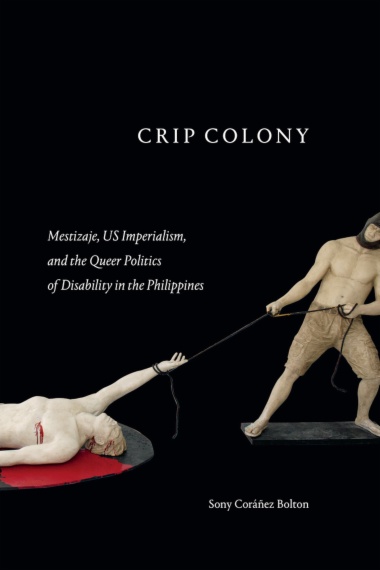In Crip Colony, Sony Coráñez Bolton examines the racial politics of disability, mestizaje, and sexuality in the Philippines. Drawing on literature, poetry, colonial records, political essays, travel narratives, and visual culture, Coráñez Bolton traces how disability politics colluded with notions of Philippine mestizaje. He demonstrates that Filipino mestizo writers in the late nineteenth and early twentieth centuries used mestizaje as a racial ideology of ability that marked Indigenous inhabitants of the Philippines as lacking in civilization and in need of uplift and rehabilitation. Heteronormative, able-bodied, and able-minded mixed-race Filipinos offered a model and path for assimilation into the US empire. In this way, mestizaje allowed for supposedly superior mixed-race subjects to govern the archipelago in collusion with American imperialism. By bringing disability studies together with studies of colonialism and queer-of-color critique, Coráñez Bolton extends theorizations of mestizaje beyond the United States and Latin America while considering how Filipinx and Filipinx American thought fundamentally enhances understandings of the colonial body and the racial histories of disability.
- Cover
- Contents
- Acknowledgments
- Crip Colonial Critique: Reading Mestizaje from the Borderlands to the Philippines
- One. Benevolent Rehabilitation and the Colonial Bodymind: Filipinx American Studies as Disability Studies
- Two. Mad María Clara: The Queer Aesthetics of Mestizaje and Compulsory Able-Mindedness
- Three. Filipino Itineraries, Orientalizing Impairments: Chinese Foot-Binding and the Crip Coloniality of Travel Literature
- Four. A Colonial Model of Disability: Running Amok in the Mad Colonial Archive of the Philippines
- Epilogue. A Song from Subic: Racial Disposability and the Intimacy of Cultural Translation
- Notes
- Bibliography
- Index
- A
- B
- C
- D
- E
- F
- G
- H
- I
- J
- K
- L
- M
- N
- O
- P
- Q
- R
- S
- T
- U
- V
- W
- Y
- Z

